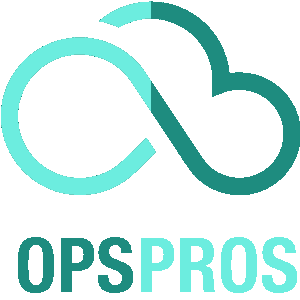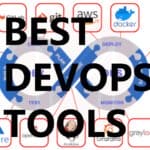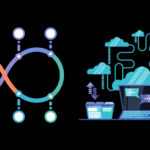 In today’s fast-paced business environment, delivering high-quality software quickly is essential for staying competitive. Many organizations have adopted DevOps practices to accelerate delivery and improve efficiency. However, implementing DevOps practices can be challenging without the right expertise and support.
In today’s fast-paced business environment, delivering high-quality software quickly is essential for staying competitive. Many organizations have adopted DevOps practices to accelerate delivery and improve efficiency. However, implementing DevOps practices can be challenging without the right expertise and support.
That’s where a dedicated DevOps enablement team comes in. A DevOps enablement team is responsible for enabling DevOps practices and empowering teams to achieve their goals. In this article, we’ll explore the importance of DevOps enablement, its benefits, and how organizations can implement it effectively.
What is DevOps Enablement?
DevOps enablement is the process of empowering teams to adopt and implement DevOps practices effectively. It involves providing the necessary resources, training, and support to enable teams to work collaboratively and deliver software faster and more efficiently.
DevOps enablement focuses on creating a culture of continuous improvement, where teams work together to identify and address areas for improvement in their development, testing, and deployment processes. It aims to break down silos between teams and foster a culture of collaboration, transparency, and accountability.
DevOps enablement is essential for organizations that want to stay competitive in today’s fast-paced and rapidly changing business environment. It helps organizations to accelerate delivery, reduce time to market, improve quality, and increase customer satisfaction.
DevOps enablement empowers teams by:
Breaking down silos between teams to foster collaboration and communication
Automating manual processes to improve speed and efficiency
Providing the necessary training and resources for teams to adopt and implement DevOps practices
Creating a culture of continuous improvement and experimentation
The DevOps team empowerment that results from DevOps enablement helps organizations to achieve their goals more effectively and efficiently. By providing the necessary support and resources, teams can focus on delivering business value and driving innovation while maintaining a high level of quality and reliability.
The Role of a DevOps Enablement Team
A DevOps enablement team plays a critical role in empowering organizations to adopt and implement DevOps practices effectively. They are responsible for driving continuous improvement, fostering collaboration, and implementing automation. The team consists of cross-functional experts who bring in diverse skill sets and expertise to enable and support the DevOps transformation.
The primary responsibilities of a DevOps enablement team include:
| Responsibility | Description |
|---|---|
| Assessing current state | They assess the current state of the organization’s technology stack, process flow, and skill set to identify the areas that need improvement. This helps in developing a roadmap towards DevOps adoption. |
| Designing DevOps architecture | They design and implement an end-to-end DevOps architecture that includes continuous integration, delivery, and deployment pipelines. This enables faster delivery of high-quality software that meets business requirements. |
| Implementing automation | They identify manual and repetitive processes and automate them to reduce errors, speed up delivery, and increase efficiency. This also frees up resources to focus on more strategic tasks. |
| Enabling collaboration | They foster a culture of collaboration and knowledge sharing between development, operations, and other business units. This helps in breaking down silos and building a cohesive team that works towards a common goal. |
The DevOps enablement team also provides training and support to other business units to help them understand and adopt DevOps practices. They collaborate with the development, operations, and security teams to ensure that the end-to-end DevOps processes are aligned and integrated seamlessly.
The Role of a DevOps Enablement Team:
In conclusion, a DevOps enablement team is essential in enabling and supporting the DevOps transformation. They bring in the expertise, skills, and culture required for successful adoption and implementation of DevOps practices.
Benefits of Having a Dedicated DevOps Enablement Team
Having a dedicated DevOps enablement team is critical to enabling DevOps practices within organizations. These teams are responsible for driving adoption and implementation of DevOps principles, tools, and automation across different teams.
One of the main benefits of having a dedicated DevOps enablement team is accelerated delivery. By implementing DevOps best practices, organizations can reduce their time-to-market, improve product quality, and increase customer satisfaction.
Another advantage is improved communication and collaboration. DevOps enablement teams help break down silos between teams, foster cross-functional collaboration, and ensure alignment between business and technology teams.
Furthermore, having a DevOps enablement team can increase efficiency. By automating manual processes and focusing on continuous improvement, organizations can achieve greater speed and efficiency in their development and deployment pipelines.
Examples of Successful DevOps Enablement
One example of a successful DevOps enablement initiative is Netflix. They have established a dedicated DevOps enablement team to drive continuous improvement, automate manual processes, and promote collaboration across different teams. As a result, they have achieved a deployment frequency of multiple times per day and a mean time to recovery of less than an hour.
Another example is Capital One, which has implemented a DevOps enablement program to support their cloud migration efforts. They have created a centralized team responsible for establishing best practices, providing training and support, and implementing automation across different business units.
In both cases, having a dedicated DevOps enablement team has been instrumental in driving success and achieving their business goals.
Implementing DevOps Enablement Practices
Adopting DevOps practices can be a challenging process for many organizations. However, with the help of a dedicated DevOps enablement team, organizations can empower their teams to implement these practices effectively.
Implementing DevOps enablement practices involves creating a culture of collaboration and knowledge sharing. One of the most critical steps is providing training to ensure all team members have a comprehensive understanding of the best practices and tools needed for effective DevOps practices. The DevOps enablement team can facilitate this training and support team members in implementing what they’ve learned.
Effective communication is another essential element of DevOps practices. The DevOps enablement team can play a vital role in breaking down silos and fostering cross-functional collaboration between teams. This collaboration ensures that everyone is on the same page and working towards the same goals, leading to better alignment and increased efficiency.
Finally, implementing automation is a critical component of DevOps practices. The DevOps enablement team can help identify areas where automation can be implemented, leading to accelerated delivery and reduced manual effort. By automating repetitive tasks, organizations can free up team members to focus on more strategic work, leading to increased productivity and efficiency.
Essential Skills and Roles in a DevOps Enablement Team
Ensuring the success of DevOps enablement requires a team with a diverse range of skills and roles. A DevOps enablement team should be tasked with driving continuous improvement, fostering collaboration, and implementing automation. Some of the essential skills and roles in a DevOps enablement team include:
- Cross-functional expertise: Team members should have knowledge and experience across all aspects of the software development lifecycle, from coding and testing to deployment and monitoring.
- Problem-solving abilities: A DevOps enablement team should be equipped to troubleshoot issues that arise during the DevOps process and find effective solutions.
- Effective communication: Team members must be able to effectively communicate and collaborate with all stakeholders involved in the DevOps process, including developers, operations, and management.
Other important roles in a DevOps enablement team include:
| Role | Description |
|---|---|
| DevOps Coach | A coach who can mentor and train team members on DevOps practices and principles. |
| Automation Engineer | A specialist who can design and implement automation solutions for the DevOps process. |
| Continuous Integration/Continuous Deployment (CI/CD) Specialist | An expert who can help set up and optimize CI/CD pipelines to enable faster and more efficient deployments. |
By having a team with these skills and roles dedicated to DevOps enablement, organizations can ensure that they are well-equipped to overcome challenges and achieve success in their DevOps journey.
Overcoming Challenges in DevOps Enablement
Implementing DevOps enablement practices can be challenging, and it’s essential to be prepared for any obstacles that may arise. Here are some common challenges you may face when setting up a DevOps enablement team:
- Resistance to change: Some team members may be resistant to change, especially if they have been working in a particular way for a long time. It’s important to communicate the benefits of DevOps enablement clearly and involve all stakeholders in the process.
- Lack of alignment between teams: DevOps enablement requires cross-functional collaboration, and it can be challenging to align teams with different priorities and objectives. Establishing a common set of goals and providing opportunities for regular communication can help overcome this challenge.
- Skills gap: DevOps enablement requires a particular set of skills, and some team members may need training to adopt new practices effectively. Provide relevant training programs and resources to upskill team members.
By understanding these challenges, you can develop strategies to overcome them and ensure the success of your DevOps enablement initiative.
Measuring the Success of DevOps Enablement
Measuring the success of DevOps enablement is crucial to understanding its impact on your organization’s productivity and performance. Here are some metrics that can help you track the progress of your DevOps enablement team:
- Deployment frequency: How often code is deployed to production. A higher deployment frequency indicates more efficiency in the software development process.
- Mean time to recovery: The average time it takes to recover from a service disruption. A lower mean time to recovery indicates a more resilient system.
- Customer satisfaction: How satisfied your customers are with your product. This can be measured through surveys and reviews.
- Lead time: The time it takes to go from an idea to a completed feature. A shorter lead time indicates a more streamlined software development process.
These metrics can help you identify areas for improvement and measure the impact of DevOps enablement on your organization’s performance. Make sure to regularly collect and analyze these metrics to ensure that your DevOps enablement efforts are achieving their intended results.
Case Studies: Successful DevOps Enablement Stories
Real-world examples of DevOps enablement success stories highlight the significant role played by a dedicated DevOps enablement team in driving success. These examples also demonstrate the importance of effective collaboration, continuous improvement, and automation in enabling DevOps practices. Here are two case studies of organizations that have successfully implemented DevOps enablement:
Case Study 1: XYZ Company
XYZ Company is a large financial services organization that faced significant challenges in delivering high-quality software products quickly. The company lacked collaboration between its development and operations teams, leading to delays and inefficiencies.
To address these challenges, XYZ Company implemented a DevOps enablement program, which involved building a dedicated enablement team with cross-functional expertise. The team focused on driving continuous improvement, fostering collaboration, and automating processes.
Through its DevOps enablement program, XYZ Company was able to accelerate its software delivery process, reduce time-to-market, and improve communication between teams. The company also saw significant improvements in its IT infrastructure management and maintenance processes.
Case Study 2: ABC Corporation
ABC Corporation is a global technology company that was struggling with the complexity of its IT infrastructure. The company had a large, distributed IT team that lacked coordination and collaboration.
To address these challenges, ABC Corporation implemented a DevOps enablement program, which involved creating a dedicated enablement team with a focus on automation and collaboration. The team helped to drive a cultural shift towards DevOps practices, while also building a culture of continuous improvement.
Through its DevOps enablement program, ABC Corporation was able to significantly reduce downtime, improve change management processes, and increase overall efficiency. The company also saw improvements in its software quality and security, which helped to drive customer satisfaction and loyalty.
Choosing the Right DevOps Enablement Partner
Partnering with the right DevOps enablement team is essential for achieving your organizational goals. Consider the following factors when selecting a partner:
- Industry experience: Look for a partner who has experience working in your industry and understands your unique business needs.
- Technical expertise: Ensure that your partner has a deep understanding of DevOps practices and the tools and technologies required to implement them.
- Cultural compatibility: Choose a partner who aligns with your organization’s culture and values, and who can work effectively with your team.
By selecting the right DevOps enablement partner, you can accelerate your DevOps transformation and achieve success more quickly.
Future Trends in DevOps Enablement
As organizations continue to adopt and mature their DevOps practices, new trends are emerging in DevOps enablement. These trends are driven by technological advancements, changing customer needs, and evolving market conditions.
One emerging trend is the use of AI-driven automation in DevOps enablement. Machine learning algorithms can help automate the testing, deployment, and monitoring processes, reducing the time and effort required for these tasks. This trend promises to improve efficiency and reliability while freeing up team members to focus on higher-value activities.
Another trend is the integration of security into DevOps processes, also known as DevSecOps. This approach builds security measures into the development pipeline, reducing the risk of vulnerabilities and enabling faster resolution of security issues. DevSecOps requires a cross-functional team with expertise in security as well as DevOps, emphasizing the importance of a dedicated DevOps enablement team.
Finally, there is a growing emphasis on continuous experimentation in DevOps enablement. This involves testing new features and ideas in a production-like environment to gather feedback and validate assumptions before making changes to the live system. Continuous experimentation enables organizations to deliver value more quickly while reducing the risk of failure.
Conclusion
In today’s fast-paced digital world, DevOps enablement has become a critical component in empowering teams to achieve their goals. A dedicated DevOps enablement team is instrumental in driving success by fostering collaboration, implementing automation, and driving continuous improvement. By enabling DevOps practices effectively, organizations can accelerate delivery, improve communication, and increase efficiency.
Implementing DevOps enablement practices requires training, knowledge sharing, and creating a culture of collaboration. Organizations must also ensure their DevOps enablement teams possess cross-functional expertise, problem-solving abilities, and effective communication skills. Overcoming challenges such as resistance to change and lack of alignment between teams is crucial to successful implementation.
Measuring the success of DevOps enablement requires key metrics and indicators such as deployment frequency, mean time to recovery, and customer satisfaction. Real-world case studies demonstrate the positive outcomes achieved by implementing DevOps enablement, and choosing the right partner is paramount. Factors such as industry experience, technical expertise, and cultural compatibility must be considered.
Looking to the future, emerging trends in the industry such as AI-driven automation, DevSecOps, and continuous experimentation will shape the future of DevOps enablement. As organizations continue to prioritize DevOps enablement, they will empower their teams to achieve their goals and drive organizational success.
FAQ
Q: What is DevOps Enablement?
A: DevOps enablement refers to the process of empowering teams to adopt and implement DevOps practices effectively. It involves providing the necessary resources, training, and support to enable teams to work collaboratively and efficiently.
Q: What is the role of a DevOps Enablement Team?
A: A DevOps enablement team is responsible for driving continuous improvement, fostering collaboration, and implementing automation within an organization. They provide guidance, support, and expertise to help teams adopt and optimize DevOps practices.
Q: What are the benefits of having a dedicated DevOps Enablement Team?
A: Having a dedicated DevOps enablement team can lead to accelerated delivery, improved communication, and increased efficiency. They help streamline processes, identify bottlenecks, and enable teams to work more effectively towards their goals.
Q: How can organizations implement DevOps Enablement Practices?
A: Organizations can implement DevOps enablement practices by investing in training, promoting knowledge sharing, and creating a culture of collaboration. It is important to provide teams with the tools and resources they need to adopt and succeed in a DevOps environment.
Q: What are the essential skills and roles in a DevOps Enablement Team?
A: A DevOps enablement team requires cross-functional expertise, problem-solving abilities, and effective communication skills. Roles can include DevOps coaches, automation specialists, and collaboration facilitators.
Q: What are the common challenges in DevOps Enablement and how can they be overcome?
A: Common challenges in DevOps enablement can include resistance to change, lack of alignment between teams, and technical complexities. These challenges can be overcome by promoting open communication, providing training and resources, and addressing any cultural barriers.
Q: How can the success of DevOps Enablement be measured?
A: The success of DevOps enablement can be measured through key metrics such as deployment frequency, mean time to recovery, and customer satisfaction. These indicators help track the effectiveness and impact of DevOps enablement practices.
Q: Can you provide examples of organizations that have successfully implemented DevOps Enablement?
A: There are several real-world examples of organizations that have successfully implemented DevOps enablement. These organizations have experienced improved collaboration, faster delivery cycles, and enhanced overall performance.
Q: What factors should be considered when choosing a DevOps Enablement Partner?
A: When selecting a DevOps enablement partner, it is important to consider their industry experience, technical expertise, and cultural compatibility. The partner should align with the organization’s goals and be able to provide the necessary support and guidance.
Q: What are the future trends in DevOps Enablement?
A: The future of DevOps enablement includes emerging trends such as AI-driven automation, DevSecOps, and continuous experimentation. These trends aim to further enhance collaboration, efficiency, and security within DevOps practices.
James is an esteemed technical author specializing in Operations, DevOps, and computer security. With a master’s degree in Computer Science from CalTech, he possesses a solid educational foundation that fuels his extensive knowledge and expertise. Residing in Austin, Texas, James thrives in the vibrant tech community, utilizing his cozy home office to craft informative and insightful content. His passion for travel takes him to Mexico, a favorite destination where he finds inspiration amidst captivating beauty and rich culture. Accompanying James on his adventures is his faithful companion, Guber, who brings joy and a welcome break from the writing process on long walks.
With a keen eye for detail and a commitment to staying at the forefront of industry trends, James continually expands his knowledge in Operations, DevOps, and security. Through his comprehensive technical publications, he empowers professionals with practical guidance and strategies, equipping them to navigate the complex world of software development and security. James’s academic background, passion for travel, and loyal companionship make him a trusted authority, inspiring confidence in the ever-evolving realm of technology.






